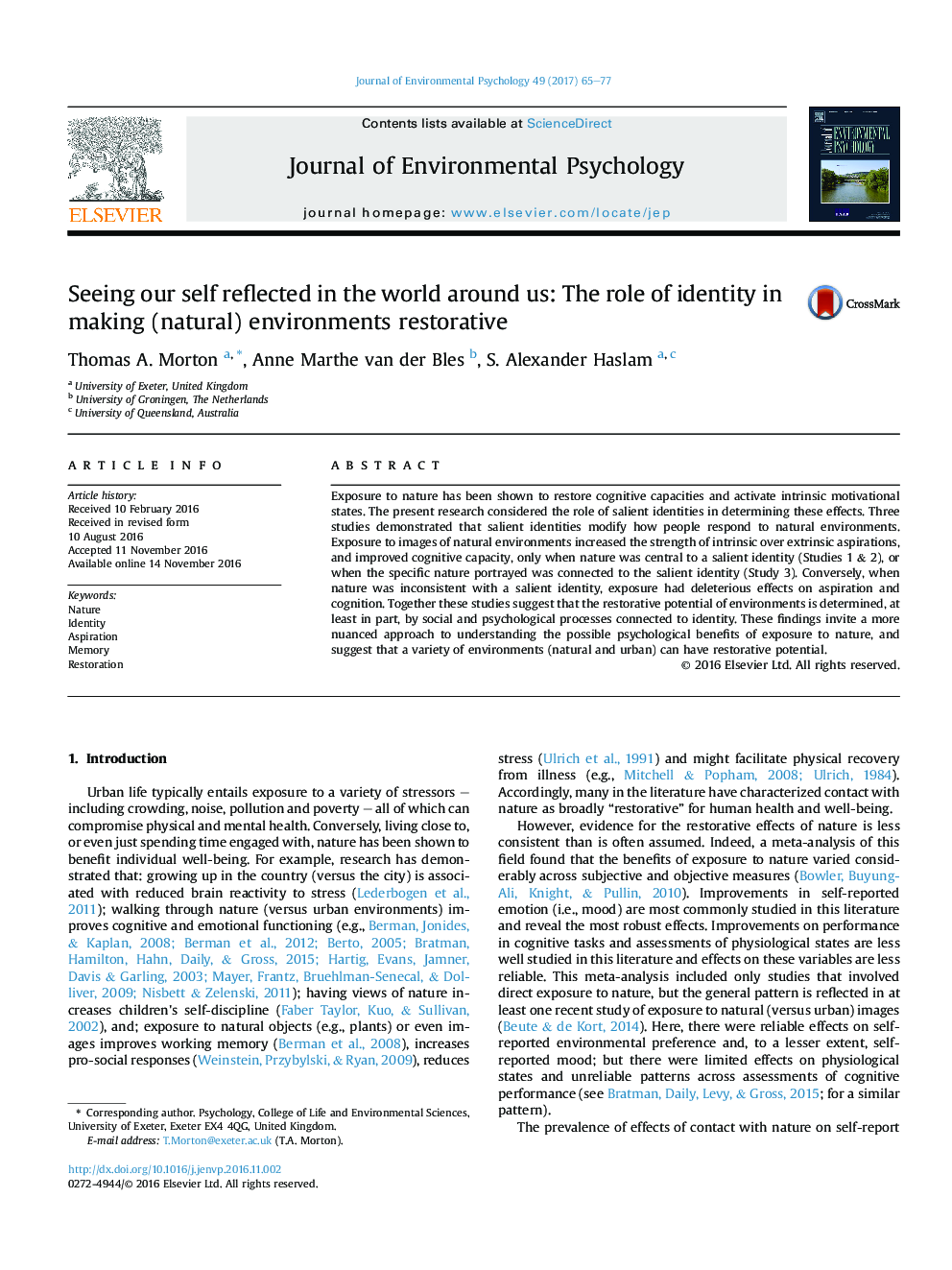| Article ID | Journal | Published Year | Pages | File Type |
|---|---|---|---|---|
| 5034942 | Journal of Environmental Psychology | 2017 | 13 Pages |
â¢Exposure to natural versus urban images has been found to improve cognitive capacity and positive motivational states.â¢Three studies show that the effects of image exposure on these outcomes are contingent on salient identities.â¢Exposure to environments congruent with salient identities improved cognitive and motivational outcomes.â¢Exposure to environments incongruent with salient identities instead impaired cognitive and motivational outcomes.â¢We offer an identity-based analysis or the restorative potential of both urban and natural environments.
Exposure to nature has been shown to restore cognitive capacities and activate intrinsic motivational states. The present research considered the role of salient identities in determining these effects. Three studies demonstrated that salient identities modify how people respond to natural environments. Exposure to images of natural environments increased the strength of intrinsic over extrinsic aspirations, and improved cognitive capacity, only when nature was central to a salient identity (Studies 1 & 2), or when the specific nature portrayed was connected to the salient identity (Study 3). Conversely, when nature was inconsistent with a salient identity, exposure had deleterious effects on aspiration and cognition. Together these studies suggest that the restorative potential of environments is determined, at least in part, by social and psychological processes connected to identity. These findings invite a more nuanced approach to understanding the possible psychological benefits of exposure to nature, and suggest that a variety of environments (natural and urban) can have restorative potential.
